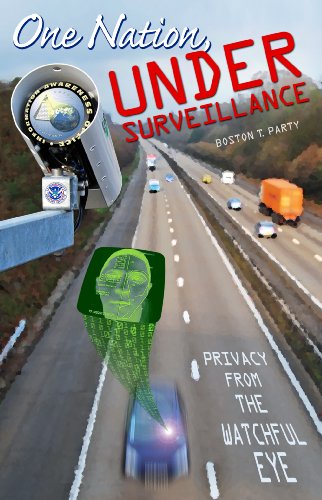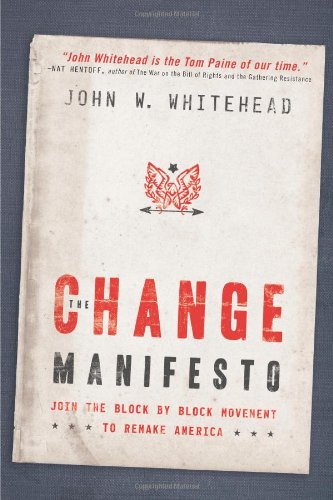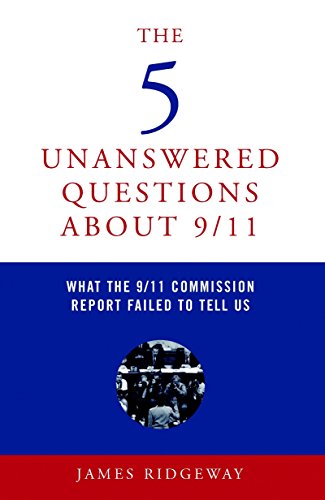"I don’t know why everybody is running to buy these expensive and useless machines. I can overcome the body scanners with enough explosives to bring down a Boeing 747. That’s why we haven’t put them in our airport."
~ Rafi Sela, leading Israeli airport security expert, referring to Tel Aviv’s Ben Gurion International Airport, which has some of the toughest security in the world
Michael Roberts, a 35-year-old airline pilot from Memphis, Tennessee, is putting everything on the line for freedom. Concerned about the world his children will grow up in, this father of six young children ranging in age from 10-months to 8-years-old has pitted himself against the American surveillance state as it encroaches upon personal privacy and our constitutional freedoms.
Friday, October 15, 2010, should have been a day like any other for Roberts. While most Americans were gearing up for the end of their work week, Roberts was setting off on his work commute, which takes him from Memphis International Airport to Houston Bush Intercontinental Airport, where he flies an Embraer 145 Regional Jet as a first officer for ExpressJet Airlines. It’s a commute he knows by heart, having done it roughly once a week for 4 years.
 One Nation, Under Surv...
Best Price: $3.80
(as of 06:20 UTC - Details)
One Nation, Under Surv...
Best Price: $3.80
(as of 06:20 UTC - Details)
Unfortunately, Roberts never made it to work that day or any day since. In fact, he never made it past the security line at the Memphis airport, which had begun using one of the new Advanced Imaging Technology full-body scanners that are currently being deployed at airports across the nation. Using either x-ray radiation or radio waves, full-body scanners can "see" through clothing to produce images of an individual’s unclothed body, although they are unable to reveal material concealed in body cavities. Critics have likened the scans to "virtual strip searches" because of the degree to which details of the body are revealed. Indeed, the ACLU has urged Congress to prohibit this technology being used in airport screening, arguing that "[p]assengers expect privacy underneath their clothing and should not be required to display highly personal details of their bodies — such as evidence of mastectomies, colostomy appliances, penile implants, catheter tubes, and the size of their breasts or genitals — as a prerequisite to boarding a plane."
Unfortunately, Congress not only failed to heed the ACLU’s warning but it has actually assisted the Transportation Security Administration (TSA) in its ongoing efforts to install these scanners in every airport in the country. The TSA plans to roll out a total of 450 full-body scanners by year’s end, with the cost of installing the approximately $150,000-a-pop machines adding up to a whopping $67.5 million — and that’s just for the devices installed in 2010. An additional $88 million is included in the 2011 national fiscal budget for 500 more machines.
Thus, while Roberts, along with several other pilots, had voiced his concerns about the full-body scanners to his employer just a month earlier, October 15 was the first time he had actually encountered the scanners on his commute to work. On this particular day, Roberts, who was in his pilot’s uniform, loaded his bags onto the X-ray scanner belt, only to be directed by a TSA agent to remove his shoes and send them through as well. When Roberts questioned the directive, he was informed it was necessary for the full-body scanner. Roberts then voiced his objection to being scanned, believing that it invaded his privacy and violated his constitutional rights against unreasonable searches and seizures by government agents. The TSA agent stated Roberts could keep his shoes on and directed him through a metal detector that had been roped off, calling out somewhat urgently to the agents on the other side: "We got an opt-out!" The agent also reported the "opt-out" into her handheld radio.
 Direct Citizen Action:...
Best Price: $0.47
Buy New $5.75
(as of 09:05 UTC - Details)
Direct Citizen Action:...
Best Price: $0.47
Buy New $5.75
(as of 09:05 UTC - Details)
It was at this point that Roberts became a "suspect." Despite clearing the metal detector without triggering any alerts, Roberts was informed by another TSA agent that because he had refused the full-body screening, he would have to go through secondary screening which involves a full pat-down search. Again, Roberts refused on the grounds that such searches violate his constitutional rights. After being informed by a TSA agent that, pursuant to a TSA decree, he could not pass through security without submitting to a full-body scan or a pat-down search, Roberts was subjected to further questioning and eventually escorted out of the airport. (Roberts has since turned to The Rutherford Institute for help in defending his constitutional freedoms.)
It’s outrageous that any American would be subjected to this kind of treatment, but it’s particularly absurd that a credentialed pilot — who is clearly not a terrorist — would be treated this way. As a friend who is also a former pilot shared recently, "If you have all of the credentials of a pilot to get through security, your weapon is waiting for you on the other side — tons of metal and jet fuel. At a minimum, you have your selection of crash axes. For the life of me, what do they expect to find on your person that would equal what you have access to on the aircraft?"
Indeed, while Michael Roberts’ security clearance as a pilot gives him a unique perspective to object to the TSA’s heavy-handed tactics, his outrage over the mishandling of his Fourth Amendment rights is universal. In recent weeks, I’ve been contacted by a number of Americans who have had their own TSA horror stories to share.
For example, one mother shared that her 17-year-old daughter was subjected to a full pat-down when flying from Boston Logan due to the new scanner malfunctioning. "Even when she began to cry, the TSA agent continued the pat down. My daughter felt molested and humiliated and as a parent I was helpless to stop this violation. These measures are not making it safer to fly. They are just arbitrary measures being done to make us believe it is safer; at the same time, it is taking advantage of law abiding citizens."
 The Revolution: A Mani...
Best Price: $1.99
Buy New $6.99
(as of 11:00 UTC - Details)
The Revolution: A Mani...
Best Price: $1.99
Buy New $6.99
(as of 11:00 UTC - Details)
Another traveler had this to share:
I recently had my first experience with TSA’s "whole body imager," and cannot express in terms strongly enough how absolutely violated I felt. Despite having complied with all of the instructions being barked at nobody in particular by a TSA employee — I removed my shoes, I removed my belt, I removed ALL contents from my pockets (right down to the lint), I removed my jacket. I entered the scanning unit, raised my hands like an apprehended criminal, and stepped out. I was then directed to stop by a male screener, with NO explanation that he was to receive a radio transmission from a person reviewing my near-pornographic image in a separate area. The TSA employee then ordered me to hold my hands out, again like an apprehended criminal. He then inserted four fingers of both hands INSIDE my trousers and ran his fingers all the way around my waist, his fingers extending at least 2—3 inches BELOW my waistline. He then used his palms and front of his hand/fingers to FIRMLY press into my buttocks and slide down each side — again, despite the fact that my pockets were COMPLETELY empty. Additionally, I was wearing a suit that day as I was on a business trip, and suit trousers are EXTREMELY lightweight, especially compared to denim.
I am a 50-year-old Air Force retiree and felt completely and totally humiliated, and yet my experience pales in comparison to some of the horrid stories heard of what is happening to females. The balance of security and civil liberties is nowhere to be seen. Whereas the courts have ruled that x-ray screening of carry-on bags is not overly invasive and so not a violation of one’s Fourth Amendment rights, TSA has now gone WAY across the line in these new procedures which are clearly a violation of passengers’ personal and private space to which each individual MUST have an expectation of privacy if the United States is to continue to be viewed as a "free society." The US government sometimes appears to have lost its collective mind. I’m fed up with being treated like an unindicted suspect.
 The Change Manifesto: ...
Best Price: $2.03
Buy New $10.60
(as of 01:25 UTC - Details)
The Change Manifesto: ...
Best Price: $2.03
Buy New $10.60
(as of 01:25 UTC - Details)
Had more Americans been willing to stand up for their freedoms early on, we might not have had to endure such a long list of abuses since 9/11. Unfortunately, few did and the list of abuses has continued to grow. In fact, it got substantially longer in the wake of the bumbling underwear bomber’s December 2009 attempt to blow up a Northwest Airlines flight. In the months that followed, the government’s knee-jerk embrace of full-body scanners as a miracle fix rapidly evolved into a headlong and expensive rush to implement scanners in all airports — a program with few guarantees of success and numerous pitfalls, not the least of which is the harrowing toll it is taking on our civil liberties and the risks it poses to our health.
Increasingly, travelers are complaining about being subjected to ogling and inappropriate remarks by airport officials. Yet this almost pales in comparison to the retributive, harsh treatment and excessive full-body searches being meted out to those who decline a full-body scan, which is still optional.
The x-rays themselves have prompted concerns about their health risks. For example, David Brenner, head of Columbia University’s Center for Radiological Research, asserts that X-ray scanners may emit 20 times more radiation than previously thought and may pose increased cancer risks. Radiologist Dr. Sarah Burnett warns of possible health risks to pregnant women and fetuses, while other physicians have recommended that pregnant women and children, who are the most susceptible to radiation, steer clear of the scanners altogether.
So why, in light of the incursions into our privacy, risks to our health, and the admitted shortcoming of the scanners’ inability to disclose material hidden in the groin area and body cavities, does government demand for the x-ray technology remain high? If you follow the money trail, which leads straight to private corporations all too willing to exploit national security fears by peddling security technology and equipment via lobbyists and influential Washington figures, this resolute march towards a surveillance state starts to make a little more sense.
As James Ridgeway, author of The Five Unanswered Questions About 9/11, notes, "Airport security has always been compromised by corporate interests. When it comes to high-tech screening methods, the TSA has a dismal record of enriching private corporations with failed technologies." Thus, it should come as little surprise that in the days following the underwear bomber’s foiled attempt, share prices for security imaging production companies skyrocketed and competition for security imaging government contracts turned into a veritable "feeding frenzy."
 The 5 Unanswered Quest...
Best Price: $1.99
Buy New $5.00
(as of 03:45 UTC - Details)
The 5 Unanswered Quest...
Best Price: $1.99
Buy New $5.00
(as of 03:45 UTC - Details)
Indeed, it doesn’t take too much digging to reveal a semi-incestuous relationship between mega-corporations and the government. The full-body scanner lobby and their private security corporation employers are a chummy group made up of former TSA personnel, as well as former members of Congress and former congressional staff. A perfect example of this is Rapiscan Systems, which retains the Chertoff Group, a security business consultant headed by former Department of Homeland Security Secretary Michael Chertoff. Using the underwear bomber’s failed terrorist attempt to great advantage, Chertoff almost immediately started making the rounds of various TV news shows to promote Rapiscan’s full-body scanners. Unless specifically asked, Chertoff did not mention his associations within the security industry — despite the fact that these associations date back to his stint in the Bush administration, when the first Rapiscan scanners were procured by the government, and have resulted in exponential pay-offs for Rapiscan. In 2009, for example, the TSA bought $25 million worth of full-body scanners from Rapiscan with finances supplied by the tax-funded American Recovery and Reinvestment Act. Ironically enough, what this means is that we the taxpayers are paying to erect our own electronic prison. Obviously, corporations such as Rapiscan, aided and abetted by the government, were waiting in the wings for some half-baked terrorist to give them a reason to spring this on us. And when that happened, corporations did not hesitate to make a killing at taxpayer expense.
The bottom line is this: forcing Americans to undergo a virtual strip search as a matter of course in reporting to work or boarding an airplane when there is no suspicion of wrongdoing is a gross violation of our civil liberties. Indeed, putting yourself through the full-body scanner is the same as subjecting yourself to a strip search. It completely undermines one’s right to privacy and to be free from unreasonable searches and seizures by government agents.
The Constitution does not allow blanket strip searches or full-body pat downs of American citizens unless there’s some reasonable suspicion that criminal activity is afoot. If we allow the government to reverse the burden of proof so that we have to prove our innocence, then we might as well give up on the Constitution altogether. At that point, we are all suspects in the surveillance state.
Right now, this is one man’s battle against the surveillance state, but it should be every American’s battle. This is our fight, now, before it’s too late. Our country is rapidly moving toward a surveillance state where no one’s privacy or freedoms will be recognized anymore. A lot is at stake. It’s time to resist the ever-growing encroachments on our freedoms.





